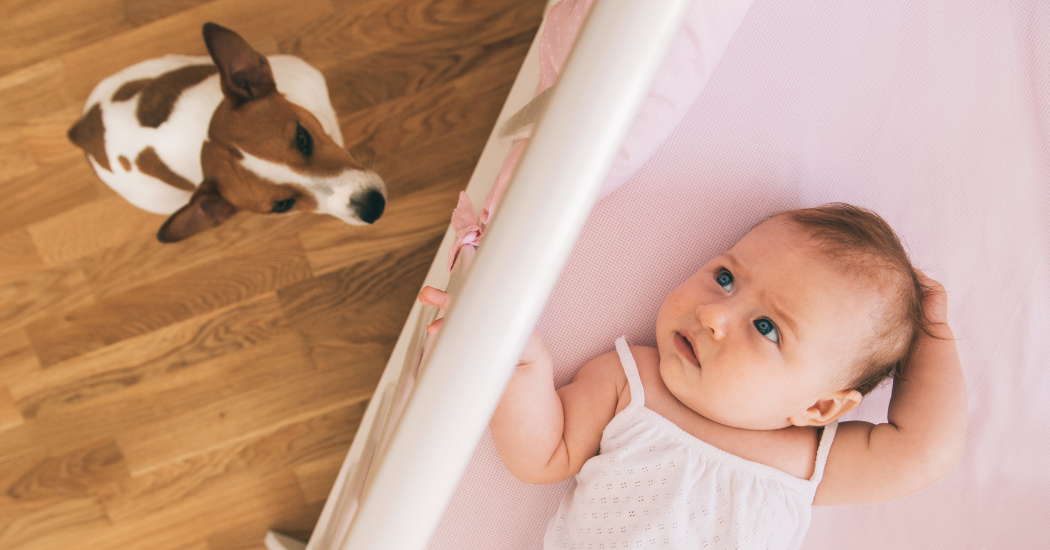Donegal Daily’s Pet Column is brought to you by veterinary nurse Michelle Kelly in association with Gary’s Pet World, Letterkenny Retail Park.
For all your pet food, health, accessories and toy needs, call instore or visit www.petworld.ie. Free shipping on orders over €29
We spend a lot of time preparing for a new baby in the home, but our pets don’t usually realise what is happening until the new baby moves in. Their life changes overnight and it can be a bit of a shock to the system.
Pets like routine and feel confident when they know what to expect. A new baby in the house can make them feel uncertain, they may get less attention and may be left alone longer than they are used to or not allowed into certain rooms now when they had been before.
How to start preparing your pets:
The earlier you prepare them the better, they’ll have a chance to adjust to the changes and will start to get used to the new routine. Go slowly and keep rewarding your pet as they learn, and you practice, to get things right at every stage.
Once the baby arrives you will thank yourself for taking the time to help your pets adjust, teaching them useful skills to help them settle.
- Set up toys and equipment – Toys, cots, prams, playpens, highchairs. Give your pets plenty of time to see them, hear any sounds they make and investigate. Build positive associations by rewarding them when you introduce something new.
- Get them used to a new routine – if your pet is no longer going to be allowed into certain rooms, they should be taught not to enter a while before the baby arrives. Set up baby gates if there are stairs etc.
- Teach them to settle – If your dog tends to bark at the doorbell or jumps on people when they come into the house, they need to stop doing this as much as possible. You are going to have lots of visitors in the first few months especially so having a crate set up or getting them used to being put outside or into another room is very useful for everyone’s safety. There are loads of videos online on how to teach these appropriately, so the dog doesn’t get stressed, or it might be a good idea to seek help from a dog trainer. Plenty of treats required.
- Start practicing walking your dog alongside the pram – If your dog does not walk nicely on a lead, it can make walking with a pram quite difficult. It might be a good idea to get help from a dog trainer to help you train a loose lead walk with your dog and then start incorporating the pram into it once they are easier to walk. The dog needs to get used to the pram too! Plenty of treats will be needed here too.
Safety first
Always supervise dogs and babies. Even the most placid and gentle dog can become stressed and unpredictable. Make sure to give them your undivided attention when they are both in the same room.
If your baby is on the floor playing, it might be a good idea to place your dog in their crate or in another room. If you can, teach your dog a place command. This means having a bed in the room and placing them there with plenty of treats and when they get off it put them straight back on and give more treats. Teaching this command before the baby arrives can be useful.
The introduction
Ideally, keep the introduction minimal. Don’t make the baby interesting because this is where issues can arise.
If someone can, take the dog on a big walk to kill some energy before bringing them in to see the baby. If the dog is going to be very excited to see the owner, bring them in to them first without the baby and do not let them jump up, especially if they had an operation.
Hold the baby in your arms. Keep the dog on a short lead and have some treats available nearby. Let the dog sniff the baby’s clothes and only let this interaction last a few minutes.
Place the baby in its bed and give the dog some attention and some treats. Keep all interactions minimal and allow the dog to investigate the bed where the baby is but do not allow them to jump up at it.
It can be a very exciting time but try to include your furry friends in the planning, so they are prepared. There are plenty of resources online and there are loads of dog trainers who are more than happy to help with getting pets used to all the changes that come with bringing a baby home.
Michelle Kelly qualified with a BSc Honours in Veterinary Nursing from LYIT. She works full-time in a clinic in Derry. She is the proud owner of a labrador named Nala, who goes everywhere with her, even to work.
As a dog owner in the North West, Michelle says she sees a lot of misunderstanding around owning a pet. With her first hand experience in a veterinary practice, she wants to give up-to-date facts and information to pet owners and to be a person people can turn to for help and advice, especially in the local area of Donegal.










